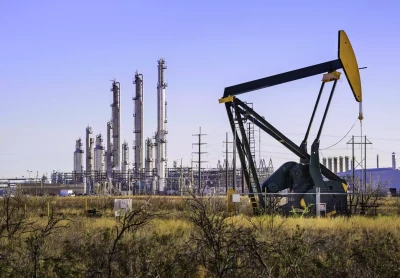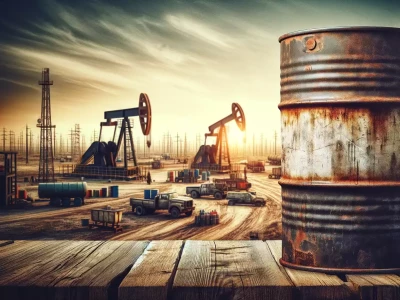From Refining to the Road: Understanding the Dynamics of Crude Oil
January 30, 2024
 The price of crude oil carries serious economic impact on the freight industry, which echoes across the supply chain and consumer goods market. Pricing factors include the various types of crude oils, their characteristics, refining processes, and the market dynamics that influence diesel prices. To fully grasp the implications for the economy, it’s important to understand the complexities of the crude oil industry and its impact on the transport field.
The price of crude oil carries serious economic impact on the freight industry, which echoes across the supply chain and consumer goods market. Pricing factors include the various types of crude oils, their characteristics, refining processes, and the market dynamics that influence diesel prices. To fully grasp the implications for the economy, it’s important to understand the complexities of the crude oil industry and its impact on the transport field.
There is a vast diversity of crude oils available worldwide, each differing slightly depending on its region of origin. From the light crude found in North Dakota to the thick, heavy oils in Venezuela, each type has distinct characteristics. One of the most important factors that can determine the price for any given oil is sulfur content, with low sulfur being desirable for diesel production. Buyers concerned with diesel production also prefer heavier crudes for optimal results when refining.
“With crude oils, you’ve got ‘sweet,’ and you’ve got ‘sour,’” explains Thomas Moore, founder of AutoScheduler.AI. “Sweet is low sulfur and sour is high sulfur. When we buy diesel, we’re buying very low sulfur diesel, which means you’ve gotten all the sulfur out of the crude.”
In the refining process, different types of crude oil can be transformed into a wide array of products. The refining process involves “cracking” and distilling crude to produce the sweeter oil needed for petroleum-based commodities, including diesel. The importance of investing in the refining process to yield the desired quality of diesel is essential. Additionally, valuable byproducts such as wax, lipstick, and petroleum jelly are derived from crude oil.
What geopolitical and environmental factors could pose challenges to the diesel market in the future? Tune in to the Stay In Your Lane Podcast for insights into this and other important transport topics.
As global demand for crude oil reaches an all-time high, issues within the oil production industry are growing more apparent each day. The impact of poor refinery efficiency, geographical variations in refining margins, and the worldwide decline in refining capacity since 2019 are at the forefront of these challenges. The concept of the “Crack Spread” indicates the profit margin for refineries and is also of great interest in the global oil economy. While the recent expansion of a major refinery in Texas may influence refining margins in the region, the full effects of this development have yet to be seen.
 “The perfect crude for diesel is heavy and sweet, but you turn lemons into lemonade with what you’ve been given,” Moore says of the oil found in the Texas region. “With West-Texas intermediary [crude], you can turn about 40% of it into the heavier grades.”
“The perfect crude for diesel is heavy and sweet, but you turn lemons into lemonade with what you’ve been given,” Moore says of the oil found in the Texas region. “With West-Texas intermediary [crude], you can turn about 40% of it into the heavier grades.”
As always, geopolitical and environmental conditions can significantly affect the price of oil. The shift toward sustainable energy sources and the push to reduce dependence on fossil fuels could also yield serious consequences in the years to come. Discussions about phasing out fossil fuels raise questions about the long-term viability of the diesel market. Concerns about potential challenges faced by investors in the diesel market should not be taken lightly as alternative fuels gain popularity around the globe.
“You’ve got global leaders talking about phasing out oil production by 2050 and governors of states talking about banning gasoline engines,” says transport industry veteran Joe Lombardo. “I don’t know if I’d want to be in the market for diesel if I was an investor. There are a lot of headwinds to take into account.”
From the characteristics of different crude oils to exploring refining processes, market dynamics, and external influences, the global crude oil market remains dynamic and responsive to change. The challenges and opportunities faced by stakeholders in an ever-evolving energy landscape are almost limitless. Nevertheless, crude oil remains an invaluable asset with significant importance in the global economic landscape. To keep up with the latest trends surrounding the future of oil and other important transport topics, subscribe to the Stay In Your Lane Podcast from Triple T Transport.














